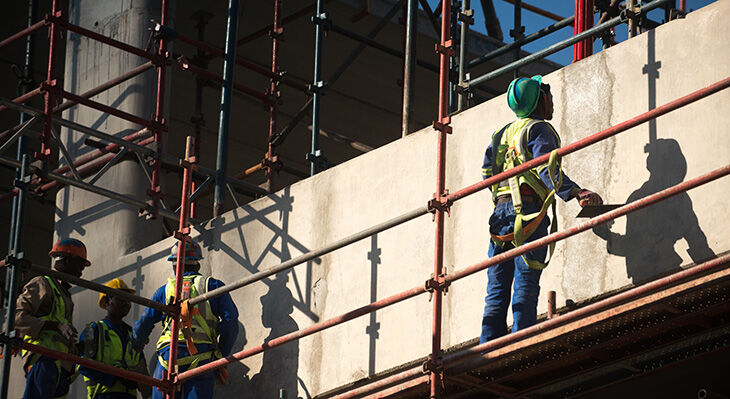Informal learning and its recognition: A comparative overview of South Africa and Ghana
Contribution to the publication: Informal Learning in Vocational Education and Training
24.09.2024
In South Africa and Ghana, learning often takes place outside of institutions, and qualifications are not recognized. Both countries aim to increase the recognition of informally acquired qualifications to promote employment. Dr. Ralf Hermann and Julia Olesen analyze the political approaches to this issue.

The recently published article by Dr. Ralf Hermann and Julia Olesen from GOVET at the Federal Institute for Vocational Education and Training (BIBB) highlights the policy approaches to the recognition of informal learning in South Africa and Ghana. A particular focus is placed on "Recognition of Prior Learning" (RPL), a mechanism designed to integrate informally acquired skills into formal education systems. This analysis examines how South Africa and Ghana address informal learning within their vocational education policies and the challenges and successes that accompany the implementation of RPL in these countries.
The authors note that recognizing informal learning plays a key role in promoting employment and economic progress. Informal learning, which occurs outside of schools and universities, encompasses a wide range of skills and knowledge often acquired in an unstructured and unintended manner. Especially in countries like Ghana, where up to 90 percent of the workforce is employed in the informal economy, RPL is a potentially transformative strategy to formally recognize these people’s qualifications, thereby improving access to formal labor markets.
In South Africa, the approach to recognizing non-formal and informally acquired skills (RPL) was implemented as early as the 1990s as part of educational reforms following the end of apartheid. The integration of RPL into the National Qualifications Framework (NQF) ensures that informally acquired skills can be recognized on a national level. The authors emphasize that these efforts are closely linked to the need to overcome the deep social and economic inequalities in the country.
Ghana has recently begun implementing RPL strategies. Since 2021, initial steps have been taken to establish a national recognition system, in close cooperation with German partners such as GIZ. The first results are promising: 98 percent of the 120 candidates from the pilot project successfully completed the process.
Despite the progress, challenges remain. In both South Africa and Ghana, the number of people benefiting from RPL is still relatively low compared to the needs of the population. Future policy efforts must therefore focus on expanding access and creating sustainable funding opportunities to fully unlock the potential of RPL.
After their presentation at the GREAT Conference in September 2022, Dr. Ralf Hermann and Julia Olesen contributed their paper "Formal—Informal—In-Between: Policy Approaches to Informal Learning and Recognition of Prior Learning in South Africa and Ghana" to the conference publication. This was published in August 2024 by Matthias Pilz under the title "Informal Learning in Vocational Education and Training."